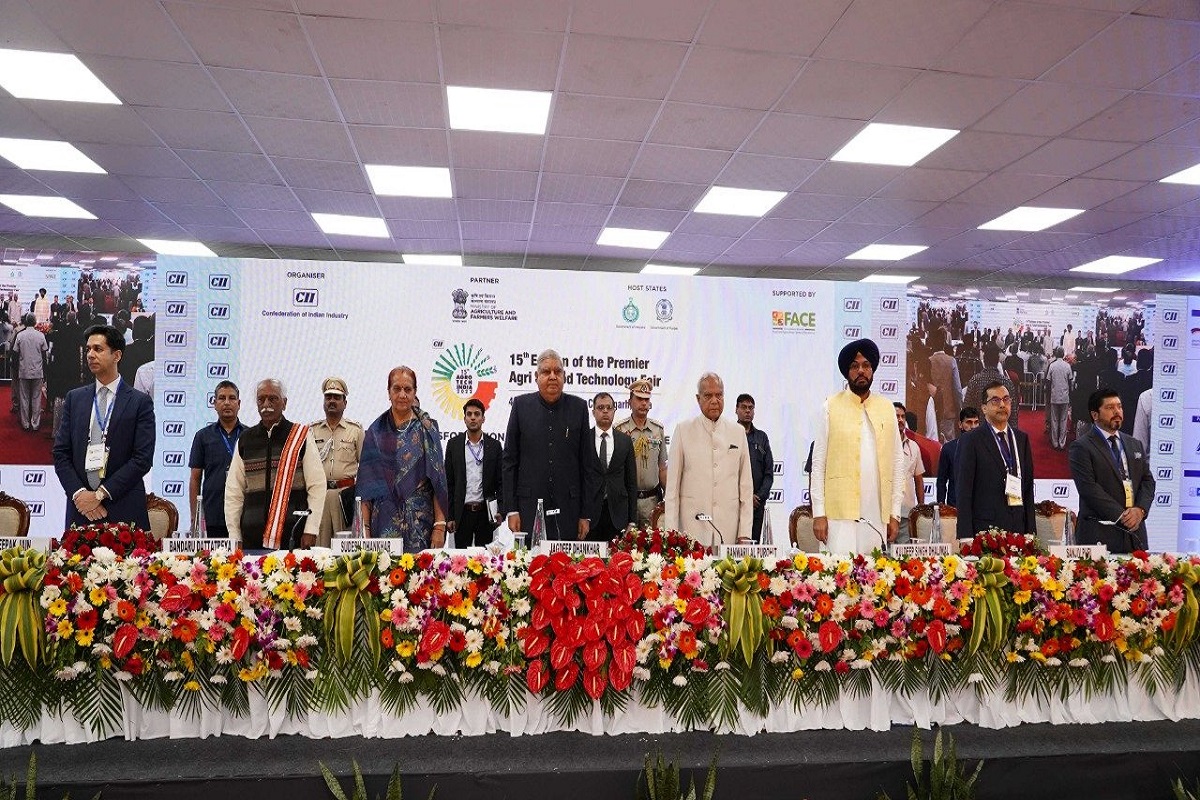Sustainable dairy and livestock management practices were the subjects of an engaging discussion as part of a special conference at the CII Agro Tech 2022 on Saturday.
The conference, with participation from eminent experts and businesses, was part of the events on the second day of the four-day 15th edition of the premier agriculture and food technology fair here.
Advertisement
The theme of the event was ‘Digital transformation for sustainable agriculture and food security.
In his opening remarks, Gurmeet Singh Bhatia, Chairman, Ajooni Biotech Ltd, said: “Livestock contributes to 40 per cent of global agriculture output. Over 70 million farmers are directly involved in dairy farming. We are here to exchange ideas on achieving sustainable diary management.”
He added that India has an abundance of genetic resources for dairy animals, both in terms of population and diversity.
“If a farmer is educated and knowledgeable, he or she will set an example for the poor and laggards who are not ready to accept change.”
Rick Nobel, Agriculture Attache with the Embassy of the Netherlands, in his address mentioned that agriculture and animal husbandry is bilateral to Dutch association with India.
In the Netherlands, there is a continuous interaction among farmers, the government, retailers, and bankers. Dutch companies are working on QR codes in India to bring more awareness among consumers regarding where the milk is exactly coming from which place and the cow that was milked.
Sachin Sharma, Vice-President, Operations, ITC Ltd, said dairy is a success story for India and the involvement of women in the industry is very high. “A challenge is that the productivity has been low, but improving. Integrated solutions are needed.”
Pranatharthiharan Natarajan, Business Development Lead, India, Thyssenkrupp Ltd, said, “There is an alternative to pasteurization of milk, called high-pressure processing. However, it lacks implementation in India. It does not kill the nutrients and does not change the taste. This will also help India’s efforts at export as this technology takes the shelf life of liquid milk to 45 days.”
Chirantan Kadian, President, Indian Veterinary Association, said: “We can use cow urine to make phenyl. Stray cattle management is a very big problem. Local bodies are wasting resources on tackling this, to very little effectiveness.”
Concluding the session, Bhatia said: “The discussion has been comprehensive and touched all aspects of sustainable dairy. Today’s dialogue will have benefitted the industry and other stakeholders.”









